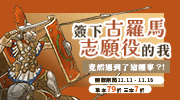On Capitalism and Inequality: Progress and Poverty Revisited
商品資訊
ISBN13:9783030396534
出版社:Springer Nature
作者:Robert U. Ayres
出版日:2021/06/13
裝訂:平裝
商品簡介
Capitalism is under attack. Defenders say that capitalism has raised billions of people from poverty. But a central activity of capitalism today, Wall Street style, is speculation (gambling), using other people's money, and privatizing the profits while socializing the debts. Skeptics argue that capitalism has redistributed the wealth of the planet in favor of a very few, meanwhile leaving the planet in bad shape and leaving billions of people out in the cold. Wealth is now extremely mal-distributed, opportunity is far from equal, and upward social mobility has declined significantly in recent decades. This book reviews the evidence and arguments pro and con in considerable detail.
The evidence is mixed. The main virtue of capitalism is its emphasis on competition as a driver of innovation and, thus, of economic growth. It is true that economic growth has accelerated in recent centuries, and it is true that billions of people have been lifted from poverty. But it is not necessarily true that intense "winner take all" competition in the marketplace is the explanation for growth. Neoclassical economic theory posits that self-interest is the primary motive for all economic decisions, leaving little room for cooperation and even less for altruism. The theory applies to an unrealistic "model" of human behavior, known as Homo economicus or "economic man", whose characteristic activity is buying or selling.The reason for using the adjective word "social" - as in socialism" or "social service" or "social democracy" -- is, essentially, to deny those postulates of standard economic theory. Real humans are not rational utility maximizers (whatever that is) and very often do things that are not in their own personal best interests. This can happen because other interests, such as family loyalty, professional, religious, or patriotic duty, may take precedence. Real people rarely behave like Homo economicus, who has rivals but no friends. He (or she) does not trust anyone, hence cannot cooperate with others, and can never create, or live in, a viable social system (or marriage). Yet social systems, ranging from families and tribes to firms, cities, and nations do (and must) exist or civilization cannot exist. A viable social system must not allow "winner takes all". It must reallocate some of the societal wealth being created by competitive activities to support the young, the old and the weak, because all of those people have equal rights, if not the same luck or the same skills.
Both competition and cooperation have important roles to play. A hybrid capitalism involving both is the only viable solution. The book ends with a specific suggestion, namely Universal Basic Income, or UBI.
主題書展
更多書展今日66折
您曾經瀏覽過的商品
購物須知
外文書商品之書封,為出版社提供之樣本。實際出貨商品,以出版社所提供之現有版本為主。部份書籍,因出版社供應狀況特殊,匯率將依實際狀況做調整。
無庫存之商品,在您完成訂單程序之後,將以空運的方式為你下單調貨。為了縮短等待的時間,建議您將外文書與其他商品分開下單,以獲得最快的取貨速度,平均調貨時間為1~2個月。
為了保護您的權益,「三民網路書店」提供會員七日商品鑑賞期(收到商品為起始日)。
若要辦理退貨,請在商品鑑賞期內寄回,且商品必須是全新狀態與完整包裝(商品、附件、發票、隨貨贈品等)否則恕不接受退貨。
























